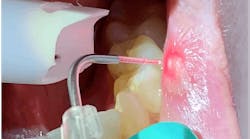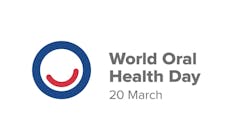Many dentists I work with pay their hygienists a guaranteed salary. They like this structure because they know exactly what to expect each month. Hygienists tend to like it too because there’s never any doubt about how much they’ll earn, like there is with a commission-based system. While it’s nice to have that predictability, it also creates a huge problem for your practice—your hygienists have no reason to ever improve their performance, and that has the potential to send your overhead costs skyrocketing.
________________________________________________________________________________________________________
THINK ABOUT IT. If your hygienists know exactly how much money they’ll earn each month, regardless of how much they produce, why would they push themselves to increase their production numbers? They’re getting paid the same whether they’re working with patients, taking a CE class, sitting in on a team meeting, or reaching out to patients on the recall list.
Trust me, when you pay your hygienists a guaranteed wage, it won’t take long for their salaries to rise above that 33% of production benchmark and eat into your practice’s revenues.
Rather than paying these important producers a guaranteed salary like you would any other employee, I suggest you compensate them more like an associate with a two-tier structure. With this system, hygienists receive a base pay plus commission based on how much they produce. This gives them the financial security that makes a guaranteed wage so attractive, as well as the opportunity to boost their earnings each month.
While hygienists might initially be leery of switching to this system, once they understand the benefits and start seeing larger paychecks, their jobs will become more rewarding and they’ll be much more motivated to excel.
Do you still need some convincing? Read on for three benefits that come with implementing a two-tier hygiene salary structure in your practice.
1. Production will rise (and so will your bottom line)
It’s simple. When your hygienists know they can earn more based on how much they produce, they’ll want to surpass that 33% benchmark every month. The result? They get a bigger paycheck while your bottom line goes up. It’s a win/win.
Here’s an example of how this might play out in your practice. Let’s say a hygienist works 10 days a month and is paid $300 a day for a total of $3,000 a month. To meet her goals, she needs to produce $9,000 a month. If she produces $10,000 one month, you can pay her a commission of 15% to 33% on the $1,000 she brought in over her monthly goal.
2. It’s easier to determine raises
Remember, raises must be earned, not given out because another year has gone by or because an employee has asked for more money. If you use the two-tier system, it’s easy to figure out what an earned raise actually should be. You simply base the bump in pay on a percentage increase on the commission, as long as it’s less than the 33% maximum.
Let’s say you decide to pay your hygienists using a straight commission system instead. This means every time you increase your fees, the hygienists get a raise. Think about what that means for your practice if the hygienists are under producing. Revenues take a hit, while the hygienists enjoy unearned pay increases.
3. You don’t have to worry about salaries eating into your bottom line
When you pay your hygienists a guaranteed salary, you leave the door open for their wages to rise well beyond the industry benchmark. If you don’t have much of a periodontal therapy program, if your recall system is weak, or if you find yourself dealing with multiple broken appointments each day, your hygienists’ production is likely nowhere near the benchmark, yet they’re still getting paid exactly the same. Overhead costs go up and the practice suffers. With the two-tier structure, this isn’t a problem.
A two-tier hygiene salary structure offers your practice a variety of benefits. Hygienists know what their base wage is, which gives them financial security each month. They also know that, with a little hard work, they have the opportunity to earn more. They understand how important their contributions are to moving the practice forward, and they leave work each day feeling happier and more satisfied with their roles. These employees become more loyal to your practice while helping to improve efficiencies and grow your bottom line.








